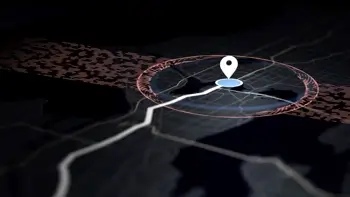What Is IP Geolocation?
IP geolocation is the identification of an IoT device’s geographical location. Essentially, all devices have their own IP address, and those IP addresses can reveal a device’s physical location, just like a real address would. That physical location can then be found in an IP geolocation lookup. Visit WhatIsMyIP.com to see the detected geolocation of your IP address.
How does IP geolocation work?
In addition to using the IP address, IP geolocation is also determined by using location databases maintained by third parties. These third party organizations have their own methods of determining location, whether it be by using IP addresses and an IP tracker, pulling data from ARIN, or a mixture of both. The IP address allows the geolocation software to access this database and match it with the entered IP address, which then can reveal data about the electronic device.
Anyone can use Internet Protocol geolocation. Geolocation database providers can access the service, most of which have both free and paid plan options. Note that because there’s no cost involved, free plans are typically less accurate than paid plans. If you’re interested in using a geolocation database provider’s services, assess the cost and level of accuracy needed to see which plan fits better for you.

Is IP geolocation accurate?
Locational data for IP address geolocation varies based on database. However, the information is generally accurate at pinpointing a person’s location coordinates down to the country and city. It consistently retrieves accurate coordinates for general areas, and it works for both IPv4 and IPv6 addresses. But in either case, it can’t tell you an exact street address for an IP.
Essentially, the accuracy decreases as the map narrows; an IP geolocation search can bring up the continent, country, city and zip code, and time zone of an address, but it can’t get more specific than that. If you need to find someone’s exact address, a geolocation service may not get you as far as you need to go.
The reason that IP geolocation accuracy isn’t 100% all of the time is because there is nothing in a search that connects IP addresses to specific physical locations. IP address assignment occurs when users go on the Internet, so that IP location may vary.
There is also no authority keeping track of all IP addresses in the registry. This would mean there is the potential for invalid data and inaccurate listings. This can lead to occasionally inaccurate listings in the IP geolocation database; however, overall, IP geolocation provides accurate general locations for users.
What is IP geolocation used for?
It has a number of uses, both personal and professional. Businesses use Internet Protocol geolocation to gather information about their customer base. Financial organizations, ad agencies, and online businesses all use geolocation to provide customers with the best possible support for their area. This enhanced service is a big benefit of Internet Protocol geolocation.
Geolocation services also benefit law enforcement agencies. It helps them prevent criminal activity, like money laundering, and it assists in criminal investigations.
For the day-to-day, Internet Protocol geolocation helps social media companies tailor content to each user based on their geographic region. When you see local content, that’s thanks to IP geolocation. When you open Google and perform a local search, that uses IP geolocation technology to provide relevant results too.
Is IP geolocation free?
There are free services; however, they may not be as accurate as a paid service. Consider your personal needs and reasons for using IP geolocation to decide if a free service will work for you.
What about my IP address?
If you want to test the geolocation accuracy of your own IP address, use the IP Address Lookup tool. The IP Lookup tool is beneficial to see what others can see about your IP; when you use the Internet or browse a website, it’s possible for others to intercept your IP address.
If the exposure of your IP address is a privacy concern to you, you can use a VPN to mask your location. A VPN, or virtual private network, encrypts your IP address and makes it so the IP address on display is the VPN’s address, not yours. This won’t slow down your Internet or disrupt your activity, but it can keep you safer online.